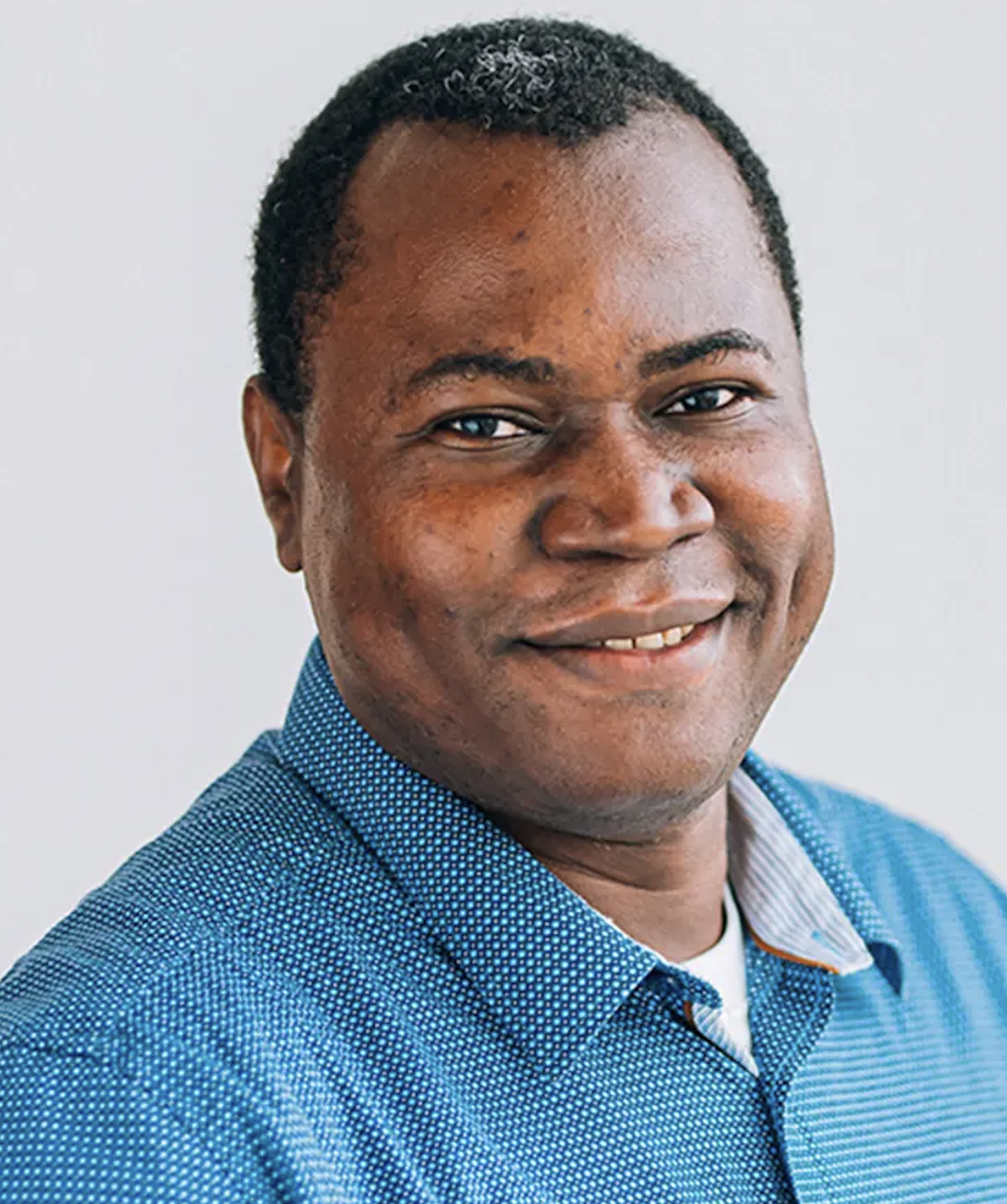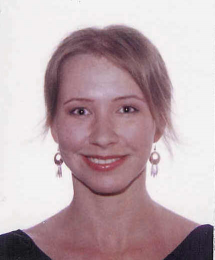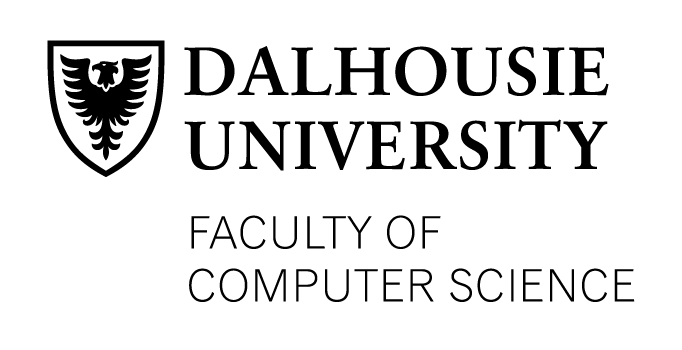

CSER 2025 Spring will be held at Dalhousie University on May 29-30, 2025.
CSER brings together (primarily) Canadian-based software engineering researchers, including faculty, graduate students, industry participants, and any others who are interested.
| Deadline | |
|---|---|
| Proposal submission | Monday, May 05, 2025 |
| Acceptance announcement | Friday, May 09, 2025 |
| Early Registration | Monday, May 12, 2025 |

Towards Reliable Machine Learning Models for Code
Large Language Models (LLMs) trained on code are increasingly being integrated into software engineering workflows, supporting tasks such as code synthesis, bug fixing, and refactoring. While their empirical performance is often remarkable, several foundational questions remain insufficiently addressed: What do these models learn? How do they reason about source code? Under what circumstances do they fail, and why.
This talk presents findings from a series of empirical investigations that seek to address these questions. First, I will examine how LLMs complement the capabilities of human developers and highlight recurring patterns of bugs and inefficiencies in their generated outputs. Second, I will discuss a systematic evaluation of behavioral regressions across model updates, focusing on logical correctness, code quality, and runtime performance.
Finally, I will introduce PrismBench, a dynamic, multi-agent benchmarking framework designed to rigorously assess and characterize the failure modes of LLMs on code generation tasks. Collectively, these studies aim to advance our understanding of LLM behavior in software engineering contexts and inform the development of more robust and trustworthy AI-assisted programming tools.
Bio: Foutse Khomh is a Full Professor of Software Engineering at Polytechnique Montréal, a Canada Research Chair Tier 1 on Trustworthy Intelligent Software Systems, a Canada CIFAR AI Chair on Trustworthy Machine Learning Software Systems, an NSERC Arthur B. McDonald Fellow, an Honoris Genius Prize Laureate, and an FRQ-IVADO Research Chair on Software Quality Assurance for Machine Learning Applications. He received a Ph.D. in Software Engineering from the University of Montreal in 2011, with the Award of Excellence. He also received a CS-Can/Info-Can Outstanding Young Computer Science Researcher Prize for 2019, the Excellence in Research and Innovation Award of Polytechnique Montréal, and the prestigious IEEE CS TCSE New Directions Award in 2025. His work has received four ten-year Most Influential Paper (MIP) Awards, eight Best/Distinguished Paper Awards at major conferences, and two Best Journal Paper of the Year Awards. He initiated and co-organized the Software Engineering for Machine Learning Applications (SEMLA) symposium and the RELENG (Release Engineering) workshop series. He also co-organized the FM+SE Summit series (https://fmse.io/), a platform where leading industrial and academic experts discuss and reflect on the challenges associated with the adoption of foundation and large models in software engineering. He is co-founder of the NSERC CREATE SE4AI: A Training Program on the Development, Deployment, and Servicing of Artificial Intelligence-based Software Systems and one of the Principal Investigators of the DEpendable Explainable Learning (DEEL) project. He is also a co-founder of Quebec's initiative on Trustworthy AI (Confiance IA Quebec) and Scientific co-director of the Institut de Valorisation des Données (IVADO). He is on the editorial board of multiple international software engineering journals (e.g., TOSEM, IEEE Software, EMSE, SQJ, JSEP) and is a Senior Member of IEEE.
Website: Personal Website

Reimagining Code Review in the Age of AI
Large Language Models (LLMs) are reshaping the way software developers approach everyday tasks — and code review is no exception. In this keynote, I will reflect on the evolution of code review practices in open source software (OSS) development, highlighting the strengths and limitations of traditional approaches. I will also share my view of how AI-powered code review assistants are opening up new opportunities for automation, collaboration, and quality assurance.
Bio: Dr. Olga Baysal is an Associate Professor at the School of Computer Science and Director of the Institute for Data Science, Carleton University. Baysal received her MMath and PhD degrees in Computer Science from the University of Waterloo and completed a short NSERC Postdoctoral Fellowship at the University of Toronto. Her research focuses on applying AI, ML, and NLP techniques to tackle software engineering problems and providing ways to synthesize knowledge from the development artifacts such as reported issues, source code, community contributions and discussions, etc. Much of Baysal's work focuses on understanding how software engineers create, use, and maintain software systems. She applies empirical software engineering techniques to study software development processes and leverages software analytics to support practitioners' decision making.
Website: Personal Website

The Surprising Implications of Realism for Software Engineering and Related Fields
Many of the practical, methodological challenges faced in social and applied sciences are rooted in outdated philosophical assumptions. Understanding newer philosophical approaches, especially critical realism, can help us solve many fundamental challenges associated with positivism, falsifications, interpretivism, and postmodernism. Realism is a family of philosophical approaches emphasizing that: (1) a real world exists independently of our perceptions of it; (2) the real world is filled with objects that have the power to cause changes in each other, whether or not humans can or do observe these changes; (3) observation is intrinsically problematic. In this talk, Dr. Ralph will give an overview of critical realism and explore its practical implications for software engineering research, including the importance of selecting better dependent variables, designing better measurement strategies, and basing research on theory.
Bio: Dr. Paul Ralph, PhD (British Columbia), B.Sc. / B.Comm (Memorial), is an award-winning scientist, author, consultant, and Professor of Software Engineering at Dalhousie University. His cutting-edge research at the intersection of software engineering, human-computer interaction, and project management explores the relationship between software teams’ social dynamics and success. It has been used by many leading technology companies including Adobe, Amazon, AT&T, Canon, Bea Systems, IBM, Google, HP, Microsoft, Netflix, PayPal, Samsung, Salesforce, VMWare, Yahoo!, and Walmart. He has published more than 80 peer-reviewed articles in premier venues including IEEE Transactions on Software Engineering and the ACM/IEEE International Conference on Software Engineering. Dr. Ralph is editor-in-chief of the SIGSOFT Empirical Standards for Software Engineering Research, the comprehensive evidence standards for software engineering research.
Website: Personal Website
| 09:00 - 09:30 |
Opening & Logistics (Welcome from GC & PCs) Chairs: Tushar Sharma, Paul Ralph, & Masud Rahman |
| 09:30 - 10:30 |
Keynote 1: Foutse Khomh (Chairs: Tushar Sharma / Masud Rahman) Towards Reliable Machine Learning Models for Code |
| 10:30 - 11:00 | Coffee Break / Poster Session |
| 11:00 - 12:30 |
Energy & Sustainability (4 x 18 minutes) (Chairs: Paul Ralph / Masud Rahman)
|
| 12:30 - 14:00 | Lunch Break |
| 14:00 - 15:00 |
Distinguished Invited Talk: Paul Ralph (Chair: Masud Rahman) The Surprising Implications of Realism for Software Engineering and Related Fields |
| 15:00 - 15:30 | Coffee Break / Poster Session |
| 15:30 - 17:00 |
Sustainability & Measurement (3 x 18 minutes) (Chair: Olga Baysal)
|
| 19:00 - 21:30 |
CSER 2025 Dinner Location: Gahan House Nova Centre, 5239 Sackville Street, Halifax, NS B3J3Y3 |
| 09:00 - 09:30 |
Logistics Chairs: Tushar Sharma, Paul Ralph, & Masud Rahman |
| 09:30 - 10:30 |
Keynote 2: Olga Baysal (Chairs: Paul Ralph / Masud Rahman) Reimagining Code Review in the Age of AI |
| 10:30 - 11:00 | Coffee Break / Poster Session |
| 11:00 - 12:30 |
Software Bugs & Debugging (4 x 18 minutes) (Chair: Foutse Khomh)
|
| 12:30 - 14:00 | Lunch Break |
| 14:00 - 15:15 |
LLM, Domain & Ethics (3 x 18 minutes) (Chairs: Masud Rahman / Tushar Sharma)
|
| 15:15 - 15:45 | Coffee Break |
| 15:45 - 16:45 | Fishbowl Session (Chairs: Tushar Sharma / Paul Ralph) |
| 17:00 - 17:30 |
Award Ceremony & Closing Chairs: Tushar Sharma, Paul Ralph, & Masud Rahman |

Towards Reliable Machine Learning Models for Code
Large Language Models (LLMs) trained on code are increasingly being integrated into software engineering workflows, supporting tasks such as code synthesis, bug fixing, and refactoring. While their empirical performance is often remarkable, several foundational questions remain insufficiently addressed: What do these models learn? How do they reason about source code? Under what circumstances do they fail, and why.
This talk presents findings from a series of empirical investigations that seek to address these questions. First, I will examine how LLMs complement the capabilities of human developers and highlight recurring patterns of bugs and inefficiencies in their generated outputs. Second, I will discuss a systematic evaluation of behavioral regressions across model updates, focusing on logical correctness, code quality, and runtime performance.
Finally, I will introduce PrismBench, a dynamic, multi-agent benchmarking framework designed to rigorously assess and characterize the failure modes of LLMs on code generation tasks. Collectively, these studies aim to advance our understanding of LLM behavior in software engineering contexts and inform the development of more robust and trustworthy AI-assisted programming tools.
Bio: Foutse Khomh is a Full Professor of Software Engineering at Polytechnique Montréal, a Canada Research Chair Tier 1 on Trustworthy Intelligent Software Systems, a Canada CIFAR AI Chair on Trustworthy Machine Learning Software Systems, an NSERC Arthur B. McDonald Fellow, an Honoris Genius Prize Laureate, and an FRQ-IVADO Research Chair on Software Quality Assurance for Machine Learning Applications. He received a Ph.D. in Software Engineering from the University of Montreal in 2011, with the Award of Excellence. He also received a CS-Can/Info-Can Outstanding Young Computer Science Researcher Prize for 2019, the Excellence in Research and Innovation Award of Polytechnique Montréal, and the prestigious IEEE CS TCSE New Directions Award in 2025. His work has received four ten-year Most Influential Paper (MIP) Awards, eight Best/Distinguished Paper Awards at major conferences, and two Best Journal Paper of the Year Awards. He initiated and co-organized the Software Engineering for Machine Learning Applications (SEMLA) symposium and the RELENG (Release Engineering) workshop series. He also co-organized the FM+SE Summit series (https://fmse.io/), a platform where leading industrial and academic experts discuss and reflect on the challenges associated with the adoption of foundation and large models in software engineering. He is co-founder of the NSERC CREATE SE4AI: A Training Program on the Development, Deployment, and Servicing of Artificial Intelligence-based Software Systems and one of the Principal Investigators of the DEpendable Explainable Learning (DEEL) project. He is also a co-founder of Quebec's initiative on Trustworthy AI (Confiance IA Quebec) and Scientific co-director of the Institut de Valorisation des Données (IVADO). He is on the editorial board of multiple international software engineering journals (e.g., TOSEM, IEEE Software, EMSE, SQJ, JSEP) and is a Senior Member of IEEE.
Website: Personal Website

Reimagining Code Review in the Age of AI
Large Language Models (LLMs) are reshaping the way software developers approach everyday tasks — and code review is no exception. In this keynote, I will reflect on the evolution of code review practices in open source software (OSS) development, highlighting the strengths and limitations of traditional approaches. I will also share my view of how AI-powered code review assistants are opening up new opportunities for automation, collaboration, and quality assurance.
Bio: Dr. Olga Baysal is an Associate Professor at the School of Computer Science and Director of the Institute for Data Science, Carleton University. Baysal received her MMath and PhD degrees in Computer Science from the University of Waterloo and completed a short NSERC Postdoctoral Fellowship at the University of Toronto. Her research focuses on applying AI, ML, and NLP techniques to tackle software engineering problems and providing ways to synthesize knowledge from the development artifacts such as reported issues, source code, community contributions and discussions, etc. Much of Baysal's work focuses on understanding how software engineers create, use, and maintain software systems. She applies empirical software engineering techniques to study software development processes and leverages software analytics to support practitioners' decision making.
Website: Personal Website

The Surprising Implications of Realism for Software Engineering and Related Fields
Many of the practical, methodological challenges faced in social and applied sciences are rooted in outdated philosophical assumptions. Understanding newer philosophical approaches, especially critical realism, can help us solve many fundamental challenges associated with positivism, falsifications, interpretivism, and postmodernism. Realism is a family of philosophical approaches emphasizing that: (1) a real world exists independently of our perceptions of it; (2) the real world is filled with objects that have the power to cause changes in each other, whether or not humans can or do observe these changes; (3) observation is intrinsically problematic. In this talk, Dr. Ralph will give an overview of critical realism and explore its practical implications for software engineering research, including the importance of selecting better dependent variables, designing better measurement strategies, and basing research on theory.
Bio: Dr. Paul Ralph, PhD (British Columbia), B.Sc. / B.Comm (Memorial), is an award-winning scientist, author, consultant, and Professor of Software Engineering at Dalhousie University. His cutting-edge research at the intersection of software engineering, human-computer interaction, and project management explores the relationship between software teams’ social dynamics and success. It has been used by many leading technology companies including Adobe, Amazon, AT&T, Canon, Bea Systems, IBM, Google, HP, Microsoft, Netflix, PayPal, Samsung, Salesforce, VMWare, Yahoo!, and Walmart. He has published more than 80 peer-reviewed articles in premier venues including IEEE Transactions on Software Engineering and the ACM/IEEE International Conference on Software Engineering. Dr. Ralph is editor-in-chief of the SIGSOFT Empirical Standards for Software Engineering Research, the comprehensive evidence standards for software engineering research.
Website: Personal Website
| 09:00 - 09:30 |
Opening & Logistics Chairs: Tushar Sharma, Paul Ralph, & Masud Rahman |
| 09:30 - 10:30 |
Keynote 1: Foutse Khomh (Chairs: Tushar Sharma / Masud Rahman) Towards Reliable Machine Learning Models for Code |
| 10:30 - 11:00 | Coffee Break / Poster Session |
| 11:00 - 12:30 |
Energy & Sustainability (5 x 18 minutes) (Chairs: Paul Ralph / Masud Rahman)
|
| 12:30 - 14:00 | Lunch Break |
| 14:00 - 15:00 |
Distinguished Invited Talk: Paul Ralph (Chair: Masud Rahman) The Surprising Implications of Realism for Software Engineering and Related Fields |
| 15:00 - 15:30 | Coffee Break / Poster Session |
| 15:30 - 17:00 |
Sustainability, Security, & Measurement (4 x 18 minutes) (Chair: Olga Baysal)
|
| 19:00 - 21:30 |
CSER 2025 Banquet Dinner
Location: Gahan House Nova Centre, 5239 Sackville Street, Halifax, NS B3J3Y3 |
| 09:00 - 09:30 |
Logistics Chairs: Tushar Sharma, Paul Ralph, & Masud Rahman |
| 09:30 - 10:30 |
Keynote 2: Olga Baysal (Chairs: Paul Ralph / Masud Rahman) Reimagining Code Review in the Age of AI |
| 10:30 - 11:00 | Coffee Break / Poster Session |
| 11:00 - 12:30 |
Software Bugs & Code Smells (5 x 18 minutes) (Chair: Tushar Sharma)
|
| 12:30 - 14:00 | Lunch Break |
| 14:00 - 15:30 |
AI Agent & LLM (4 x 18 minutes) (Chairs: Masud Rahman / Tushar Sharma)
|
| 15:30 - 16:00 | Coffee Break / Poster Session |
| 16:00 - 17:00 | Fishbowl Session (Chairs: Tushar Sharma / Paul Ralph) |
| 17:00 - 17:30 |
Award Ceremony & Closing Chairs: Tushar Sharma, Paul Ralph, & Masud Rahman |
Details of invited new faculty talks will be announced soon.
Panel details will be announced soon.
Tutorial details will be announced soon.
Research talk details will be announced soon.
Poster and demo details will be announced soon.
Dear CSER Community,
We are excited to announce that the new version of CSER is on the horizon! For CSER 2025 Spring, we are soliciting proposals for our “New Faculty Talks” series. In this series, newly hired faculty members will introduce themselves, share their research, and engage with the community. Each talk will last 20 minutes, followed by a brief Q&A session. Please note that all talks will be held in-person at Dalhousie University.
This is an excellent opportunity to present your work to a broader audience and foster academic collaboration. For further details on the event and registration, please visit the Dalhousie University website.
If you are a newly hired faculty member, please submit your details including:
Please complete the Faculty Talk Proposal Form by Monday, May 05, 2025. After the submission deadline, we will follow up with further details regarding the schedule and presentation format.
If you know of any newly hired faculty members who might be interested, please forward this invitation to them or contact us directly.
We look forward to your participation!
Dear CSER Community,
We also invite students to showcase their research at CSER 2025 Spring. You may choose to deliver a 10–15 minute presentation or submit a poster/demo. This is a fantastic opportunity to gain presentation experience and connect with the software engineering research community.
For your submission, please include:
Please submit your proposal using the Student Presentation/Poster Proposal Form by Monday, May 05, 2025. We will provide the final schedule and additional presentation details after the submission deadline.
Faculty members, please encourage your students to participate!
We look forward to your innovative submissions!
You can follow the link below to register your ticket.
Registration link
| Early Bird (By May 12th) | Regular (After May 12th) | |
|---|---|---|
| Students | $230 (plus taxes) | $270 (plus taxes) |
| Non-students | $260 (plus taxes) | $270 (plus taxes) |
Cancellation Policy:
- A $100 cancellation fee applies.
- Last date for cancellation: May 25, 2025.
- Registration transfer to another participant (same category) allowed until May 25, 2025.
Note:
- Registration cost includes lunch for two days, coffee breaks, and a dinner at the heart of Halifax downtown..
